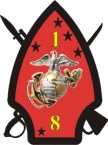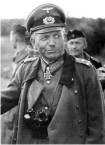http://www.philm.demon.co.uk/Miscellaneous/Sealion.htm
The Sealion option just wasn't a feasible one for Germany:
* The Kriegsmarine was badly outnumbered, and it wasn't realistic to expect that the Luftwaffe could sink enough ships to even the score, given the historical track record they had.
* Comparisons to D-Day:
D-Day had 2 years set aside for planning. Sealion had 84 days
D-Day transported 5 Allied divisions. Sealion intended to transport as many as 9.
D-Day saw the Allies having complete air and naval superiority, specially designed equipment for the task, 2 years' worth of experience performing amphibious landings, friendly local resistance, and branch inter-operability. Not so much for the Germans
D-Day landings were conducted over a 50 mile stretch of coastline. Sealion intended to have a front of 275 miles across.
* According to the planners, there would be a period of 8-10 days between the landings and a second wave of reinforcements and supplies. That is, the 9 German divisions would have to hold out against 28 Allied divisons for more than a week without resupply
* The west end of the English Channel was supposed to be blocked off by U-boats, while the east end was supposed to be blocked off by mines and 14 torpedo boats. In both cases, neither of these forces are quite suited to stopping the 17-20 RN destroyers that they were expected to face.
* The means of protection for the transport fleet against any RN ships that penetrated this "blockade" would be for the soldiers in the transport barges to shoot at any ships that they could not positively identify. At night.
* Speaking of the transport barges, these were suited for river travel, and could be sunk simply by the RN driving over them and letting the sea-wash do the rest.
* There were not enough ship-trained men to man the barges anyway, as scraping the bottom of the maritime-trained barrel meant that they still lacked 4 000 sailors, not to mention that the Kriegsmarine's own ships would be operating with minimal crew, while being expecting to fight a major fleet action.
* The barges travel at 2-3 knots while being towed by a tug. Against the 5 knot tides of Channel, the soldiers in these barges would be sailing for about 30 hours, exposed to the elements all the while, only to land on a hostile beach.
* The barges were expected to sail until they were 10 miles out from the beach, then form an order line parallel to the coast, then advance simultaneously. At night. With only hailers to provide communication and coordination. Without practice. Without a complete complement of sailors.
* Attempts to create makeshift ferries / rafts / pontoons were disastrous failures, especially since they were tasked to an Engineer Battalion that was based in Bavaria. That they could not create these improvised floatation devices meant that the Wehrmacht's landing forces would have to make do without their horse-based transportation.
* In order to capture a port in short order to facilitate resupply, the Luftwaffe planned to use paratroopers, except there were no provisions for escorting the paradrop planes, and the drop zones were 10-15 miles away from Dover itself.
* There were no plans to deal with coordination or organization of the units after they had landed. The Wehrmacht would basically instruct Regimental and Battalion commanders to do whatever they could with whatever forces they could scrape together after the landing, in the hopes that these small "weak but continuous fronts" would somehow gel together into a coherent force.
* There were no plans to include artillery with the first wave, which meant that even 19th century fortifications like the Martello Towers might prove to be useful against the rifles and hand grenades of the Germans.
* There were no plans to include engineers or their equipment with the first wave, which meant that after passing the Martello Towers, the Germans would be stopped cold at the Royal Military Canal, since it would be uncrossable without bridging equipment.
* Since there were not enough life jackets for everyone, the first wave was expected to take off their life jackets (which are worn UNDERNEATH the combat pack) and bring them back to the water's edge. All the while being shot at by the British. There were no plans for who was supposed to coordinate the retrieval of the life jackets, and their retrieval would have conflicted with the Kriegsmarine's orders to leave as soon as the troops had been dropped off the barges anyway.
* Despite the lack of engineers, artillery or any other heavy equipment, 4 000 horses were supposed to be included in the first wave.
* The Luftwaffe was expected to act as artillery for the first wave, keep the RN at bay, achieve total air superiority, cut off supplies and reinforcements by bombing railway lines, and engage in anti-civilian terror bombing to cause a road-choking panicked evacuation. Mind you, the RAF's 11 Fighter Group had about as many Spitfires and Hurricanes (570) as the Luftwaffe had ME-109s (600)
* Simply pulling 11 Fighter Group back to the English Midlands would have been sufficient to put them out of reach of German fighters, which meant that the British airfields, industrial areas, ports, supply dumps and troop concentrations would have been nigh-untouchable, unless the Luftwaffe was willing to send unescorted bombing raids against these.
* If the Luftwaffe slow down their anti-RAF operational tempo in support of the landings, then 11 Group has a chance to rest, rearm and recover, as would 10 Group and 12 Group. If the Luftwaffe allocate their fighters to protect the landing barges, then the bombers (i.e. the artillery) have to go unescorted. If the Luftwaffe decides to protect their bombers, then RAF Bomber Command can attack the huge mass of barges moving along at 2 knots. If the barges are somehow protected from air attack anyway, then the Luftwaffe isn't watching out for the RN, which as said before, can simply sink these barges by driving over them with a Destroyer or two.
* Britain was producing more fighters than Germany was, and the setting of the battle favored the British in recovering any downed pilots.
* During the single exercise meant to practice the planned operation, less than 50% of the troops managed to make it ashore, despite the fact that it was done in broad daylight (unlike the planned night landings), without hostile beach defenders, without hostile aircraft, in good weather, and with only a mile's worth of sailing.
* The suggestion of invading earlier, in July, would arguably have been worse, as you're pitting a weaker Kriegsmarine (still recovering from Norway), a weaker Luftwaffe (still recovering from supporting Fall Gelb) and a weaker Wehrmacht (still recovering from executing Fall Gelb) against a stronger RAF (no attrition from the Battle of Britain) and possibly stronger Allied forces (if we assume the variant where France isn't completely beaten before the invasion begins). Even if we handwaved all of this away, invading in July means no time to have gathered up those oh-so-sinkable barges. Without them, the Kriegsmarine can transport a grand total of one division.










